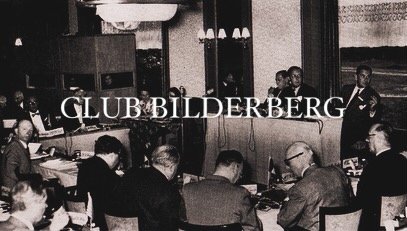Introduction to the Bilderberg Meetings
The Bilderberg Meetings, often shrouded in mystery and intrigue, have been a focal point of global discussions since their inception. Established in 1954, these gatherings were conceived as a forum where influential figures from Western Europe and North America could engage in candid and off-the-record dialogues. The primary objective was to foster better understanding and cooperation on pressing global issues, thereby promoting a more unified Western policy approach during the Cold War era.
The inaugural meeting took place at the Hotel de Bilderberg in Oosterbeek, Netherlands—a venue that eventually lent its name to this elite annual event. The gathering was the brainchild of several prominent European and American leaders, including Polish political advisor Józef Retinger, former Belgian Prime Minister Paul Van Zeeland, and Prince Bernhard of the Netherlands. Their vision was to create a platform where political leaders, business magnates, and intellectuals could converse openly without the constraints typically imposed by public scrutiny or media attention.
Attendees of the Bilderberg Meetings are meticulously selected to ensure a diverse yet influential mix of participants. These individuals often include heads of state, top executives from multinational corporations, leading academics, and senior officials from international organizations. The participant list, while varied, consistently comprises key decision-makers capable of shaping global policies and economic trends. Their discussions span a broad spectrum of topics, from economic and geopolitical challenges to technological advancements and social issues.
A hallmark of the Bilderberg Meetings is their private and informal nature, designed to encourage frank and open dialogue. This confidentiality is intended to eliminate the pressures associated with public opinion and media coverage, thereby allowing participants to explore innovative solutions and share insights more freely. Despite the secrecy that surrounds these meetings, the overarching aim remains clear: to facilitate a deeper understanding and collaboration among the Western world’s most influential figures. This unique setup has sustained the Bilderberg Meetings as a pivotal nexus of power and secrecy for nearly seven decades.

Topics of Discussion: From Communism to Cybersecurity
The Bilderberg Meetings, often shrouded in secrecy, have served as a platform for high-level discussions on a myriad of global issues. Historically, these meetings have addressed significant geopolitical shifts, such as the rise and fall of communism. During the Cold War era, the specter of nuclear warfare loomed large, prompting extensive debates among the attendees about strategies to mitigate such existential threats. These discussions were pivotal in shaping the policies of Western nations, as they navigated the complexities of a bipolar world order.
In recent years, the focus of the Bilderberg Meetings has evolved to encompass contemporary challenges that are no less daunting. Cybersecurity has emerged as a critical topic, reflecting the growing importance of digital infrastructure in national security and economic stability. The attendees, comprising political leaders, industry magnates, and experts, engage in deep analyses of cyber threats, discussing potential vulnerabilities and strategies for defense. These deliberations often influence the cybersecurity policies of individual nations, as they seek to safeguard their digital landscapes from malicious actors.
Beyond cybersecurity, the Bilderberg Meetings also tackle a broad spectrum of global trends and challenges. Issues such as climate change, economic inequality, and technological advancements are recurrent themes. The discussions on climate change, for instance, have underscored the urgency of international cooperation to combat environmental degradation. Similarly, debates on economic inequality have highlighted the need for inclusive growth strategies that ensure broader access to economic opportunities.
The influence of Bilderberg discussions extends far beyond the confines of the meeting rooms. The insights and consensus reached during these gatherings often percolate into national policies and international agreements. By bringing together a diverse array of thought leaders, the Bilderberg Meetings serve as an incubator for ideas that can shape the future trajectory of global affairs. As such, their role in addressing both historical and contemporary issues underscores their enduring relevance in a rapidly changing world.
Controversies and Conspiracy Theories
The Bilderberg Meetings have long been a focal point for controversy and conspiracy theories. Critics argue that the secrecy surrounding the gatherings fuels suspicion and speculation. The meetings, which are attended by influential figures from politics, business, and academia, are often perceived as covert assemblies where global agendas are set away from public scrutiny. This opacity has led to numerous theories about the true intentions and activities conducted during these sessions.
One of the most persistent critiques is the lack of transparency. The Bilderberg Group maintains a strict policy of non-disclosure, with attendees prohibited from revealing the specifics of their discussions. This has led many to believe that the group operates with impunity, making decisions that affect global policies and economies without any form of accountability. The absence of official records or public statements further exacerbates these concerns, leaving room for speculation and mistrust.
Conspiracy theories abound, with some suggesting that the Bilderberg Meetings are a front for a shadowy global government. Proponents of this view argue that the annual gatherings are used to coordinate actions that benefit a select group of elites at the expense of the general populace. Allegations range from manipulating financial markets to orchestrating major geopolitical events. While these theories lack concrete evidence, they have gained traction among those who are skeptical of elite power structures and their influence on world affairs.
Critics also point to the exclusivity of the meetings as a source of concern. With attendance limited to a few hundred individuals, the Bilderberg Meetings are seen as emblematic of elitism and inequality. This perceived concentration of power among a small, privileged group raises questions about the democratic legitimacy of decisions that may have far-reaching implications. The secretive nature of the meetings thus not only breeds suspicion but also undermines public trust in global institutions and leadership.
In summary, the controversies and conspiracy theories surrounding the Bilderberg Meetings highlight the tension between elite decision-making and public accountability. Whether viewed as a benign forum for discussion or a clandestine council of the powerful, the lack of transparency continues to fuel debate and distrust.
Impact and Influence on Global Affairs
The Bilderberg Meetings, often shrouded in mystery, have had a significant impact on global affairs. While the discussions held during these annual gatherings remain confidential, there is substantial evidence to suggest that the decisions and dialogues among the world’s most influential leaders have far-reaching consequences. These meetings serve as a platform where key policymakers, business magnates, and intellectuals converge to discuss pressing global issues, which often translate into actionable policies and strategies.
One notable example of the Bilderberg Meetings’ influence is the formation of the European Union. Reports indicate that the concept of a unified Europe was extensively discussed during the 1950s Bilderberg Meetings. Prominent figures in attendance, who were instrumental in European integration, used these discussions to shape the policies that led to the creation of the EU. This underscores the meetings’ role in fostering international cooperation and shaping geopolitical landscapes.
Another case worth mentioning is the economic policies that emerged from the discussions at Bilderberg Meetings. Participants often include key financial leaders and central bankers who discuss global economic trends and potential crises. For instance, the response to the 2008 financial crisis saw coordinated efforts among countries that had been part of previous Bilderberg Meetings, highlighting the meetings’ role in economic governance and crisis management.
Furthermore, the Bilderberg Meetings play a crucial role in elite networking, providing a unique environment for informal diplomacy. The relationships forged and the consensus built during these gatherings often translate into collaborative efforts on the global stage. This informal diplomacy can lead to more cohesive and coordinated international relations, influencing everything from trade agreements to security alliances.
In the broader context of global governance, the Bilderberg Meetings exemplify the intersection of power and secrecy. While the lack of transparency has fueled numerous conspiracy theories, the real impact lies in the ability of these meetings to bring together diverse yet powerful stakeholders who can collectively address complex global challenges. By facilitating a space for open dialogue among elites, the Bilderberg Meetings indirectly shape the trajectory of global affairs, making them a focal point of both intrigue and influence.







